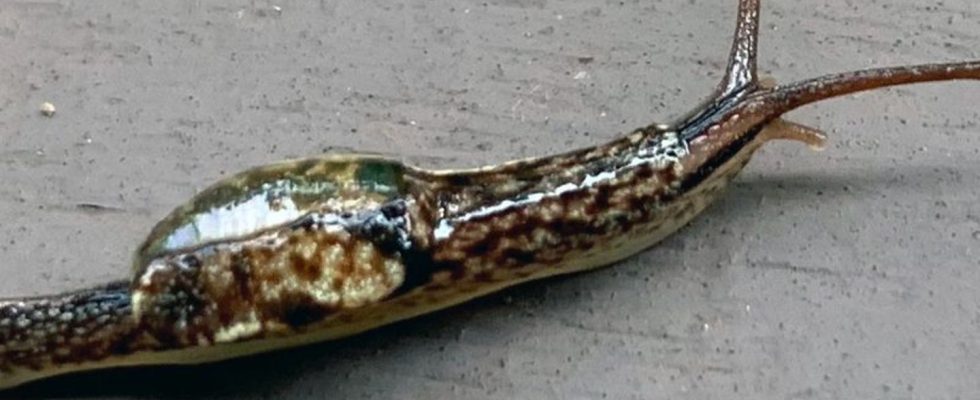Animals
Unidentified semi-nudibranch species discovered in Brunei
They carry houses on their backs, but these are too small for the molluscs to be able to retreat into. photo
© M. Schilthuizen/Taxon Expeditions/dpa
There are slugs and snails with shells. In between are the semi-nudibranchs. This group has now grown.
In the tropical rainforest of the Sultanate of Brunei, researchers have discovered a new species of snail with an uninhabitable shell.
According to a study in the specialist magazine “Biodiversity Data Journal”, investigations, including a DNA analysis, were carried out in a field camp in the middle of the jungle of the Ulu Temburong National Park after the animals were found. The result: The five examined specimens are a type of so-called semi-nudibranch that has not yet been described by science. The species was christened Microparmarion sallehi.
Lay researchers who had accompanied scientists into the jungle for money were also involved in the discovery.
The animal inhabitants of Borneo
Although semi-nudibranchs – or “semislugs” in English – have houses on their backs, these are too small for the mollusks to retreat into. Still, the shells provide some form of protection without getting in the way of the worm-like physique. On the island of Borneo, where Brunei is located, there are particularly many specimens of the semi-slug type. It is not yet clear why this is so. However, Borneo is famous for its enormous biodiversity.
Most of the approximately ten known semi-slug species of the genus Microparmarion live in cool forests in the mountains. The amateur researchers were therefore surprised to come across animals of this species in the lowland rainforest of the Ulu Temburong National Park. A specimen was sighted for the first time in 2018, but it was only last year that the new species was researched and described in detail.
The animals are difficult to find because they are crepuscular and nocturnal and often hidden under leaves, the study says.

